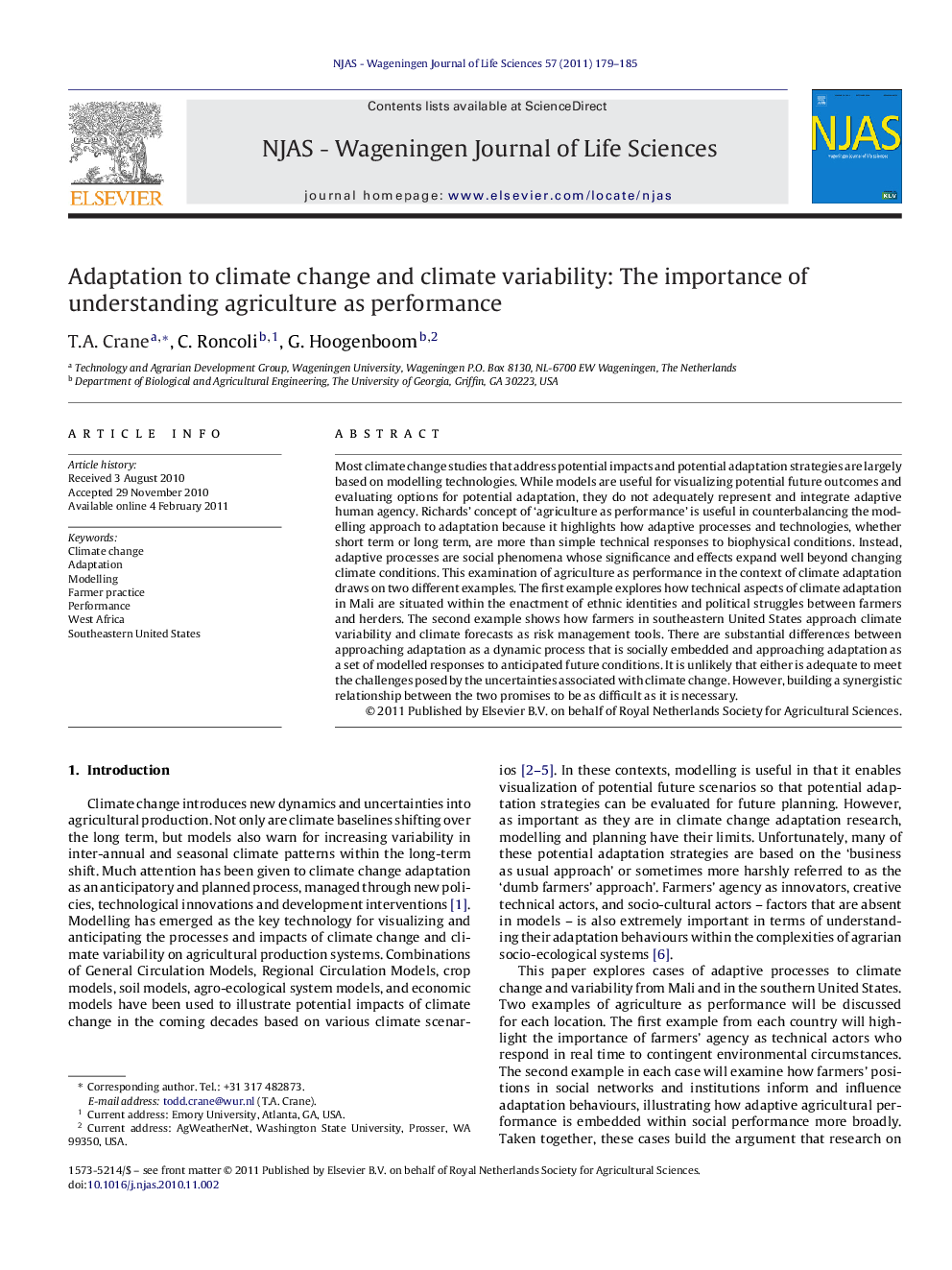| Article ID | Journal | Published Year | Pages | File Type |
|---|---|---|---|---|
| 4501402 | NJAS - Wageningen Journal of Life Sciences | 2011 | 7 Pages |
Most climate change studies that address potential impacts and potential adaptation strategies are largely based on modelling technologies. While models are useful for visualizing potential future outcomes and evaluating options for potential adaptation, they do not adequately represent and integrate adaptive human agency. Richards’ concept of ‘agriculture as performance’ is useful in counterbalancing the modelling approach to adaptation because it highlights how adaptive processes and technologies, whether short term or long term, are more than simple technical responses to biophysical conditions. Instead, adaptive processes are social phenomena whose significance and effects expand well beyond changing climate conditions. This examination of agriculture as performance in the context of climate adaptation draws on two different examples. The first example explores how technical aspects of climate adaptation in Mali are situated within the enactment of ethnic identities and political struggles between farmers and herders. The second example shows how farmers in southeastern United States approach climate variability and climate forecasts as risk management tools. There are substantial differences between approaching adaptation as a dynamic process that is socially embedded and approaching adaptation as a set of modelled responses to anticipated future conditions. It is unlikely that either is adequate to meet the challenges posed by the uncertainties associated with climate change. However, building a synergistic relationship between the two promises to be as difficult as it is necessary.
